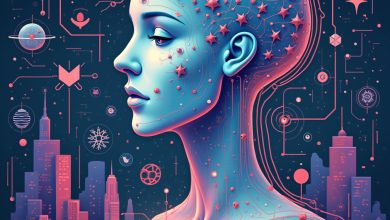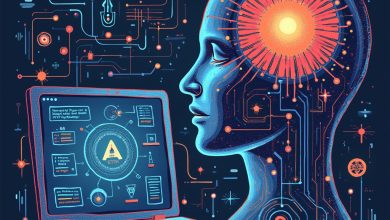The Ethics of Artificial Intelligence

Introduction
As artificial intelligence (AI) continues to evolve and permeate various aspects of our lives, the conversation around its ethics becomes increasingly important. AI technologies, from voice assistants to self-driving cars, offer exciting possibilities, but they also raise significant ethical questions. This article aims to explore the key ethical considerations surrounding AI in a way that is easy to understand.
What is Artificial Intelligence?
Before diving into the ethics, it’s essential to understand what AI is. At its core, artificial intelligence refers to computer systems that can perform tasks typically requiring human intelligence. These tasks may include learning, reasoning, problem-solving, and even understanding natural language. While AI has the potential to improve efficiency and convenience in many areas, it also brings ethical dilemmas that we must address.
Key Ethical Issues in AI
Several ethical considerations arise with the development and implementation of AI technologies. Here are some of the major issues:
- Bias and Fairness: AI systems are trained on data, and if that data contains biases, the AI can perpetuate or even amplify these biases. For example, if an AI used in hiring is trained on data that reflects historical hiring biases, it may favor certain demographics over others.
- Privacy: AI systems often require vast amounts of data to function effectively. This raises concerns about how personal data is collected, stored, and used. Are individuals informed about how their data will be utilized? Are there safeguards in place to protect their privacy?
- Accountability: When an AI system makes a mistake or causes harm, determining who is responsible can be challenging. Is it the programmer, the company that developed the AI, or the user? Establishing accountability is crucial for addressing issues that arise from AI usage.
- Job Displacement: As AI technologies automate tasks, there is concern over job loss in various sectors. While AI can create new job opportunities, the transition may leave many workers struggling to find new roles, leading to economic disparities.
- Autonomy and Control: The increasing capabilities of AI raise questions about human control. As AI systems become more autonomous, how do we ensure they align with human values and ethics? The potential for AI to operate independently brings about fears of loss of human oversight.
The Importance of Ethical AI Development
Given these ethical challenges, developing AI responsibly is essential. Here are some key principles to consider:
- Transparency: AI systems should be designed in a way that their decision-making processes are understandable to users and stakeholders. Transparency helps build trust and enables accountability.
- Inclusivity: Involving diverse groups of people in the design and implementation of AI can help mitigate biases and ensure that the technology serves a broader range of interests and needs.
- Privacy Protection: Companies must prioritize user privacy by implementing strict data protection policies and practices. Users should have control over their data and be informed about how it is used.
- Regulation and Oversight: Governments and organizations need to establish regulations that guide the ethical development of AI technologies. This includes setting standards for accountability and ensuring that AI systems are regularly audited for fairness and safety.
Conclusion
The ethics of artificial intelligence is a complex and evolving field that necessitates careful consideration. As we continue to integrate AI into our daily lives, we must remain vigilant about the ethical implications of this technology. By promoting transparency, inclusivity, and accountability in AI development, we can harness the benefits of AI while minimizing its risks. Ultimately, the goal should be to create AI systems that enhance human well-being and respect our shared values.




